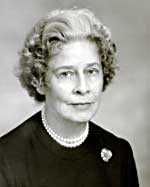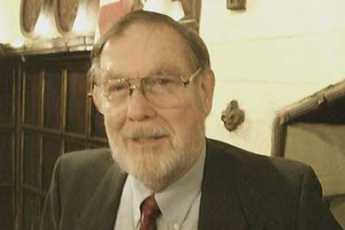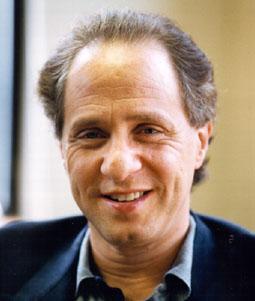Related Topics
Science
Science
Right Angle Club 2007
A report, to the year 2007 shareholders of the Right Angle Club of Philadelphia, by the outgoing president.
Volunteerism
The characteristic American behavior called volunteerism got its start with Benjamin Franklin's Junto, and has been a source of comment by foreign visitors ever since. It's still a very active force.
Recording for the Blind and Dyslexic

|
| Anne Mc Donald |
Anne T. Macdonald developed the idea in 1948 that a large number of blinded war veterans would benefit from recorded textbooks. Starting at the New York Public Library and now with a national headquarters in Princeton, a string of 29 centers have appeared across the nation, with an average of 7000 volunteers contributing their time reading textbooks into recording devices. The Philadelphia effort started at 36th and Market and has since moved to King of Prussia, where 280 volunteers read in teams of two, one inside the recording booth, and the other outside following the performance and stopping it for errors or muffled recordings. Since the effort specializes in technical textbooks, there is a constant search for specialists in particular technical fields. It is particularly important to understand the technical nature of the material when pronunciation is difficult, and when complicated graphs or illustrations need to be described for a blind audience. Originally, the material was produced on reels of tape but tends nowadays to concentrate on CDs and other disc recording devices.

|
| Ralph Cohen |
Ralph Cohen, himself a volunteer reader, very kindly described the enterprise to an audience at the Right Angle Club of Philadelphia recently. It is particularly heartening to hear stories of blind persons receiving advanced technical degrees because of the availability of these recorded texts, even stories of those who rose from menial jobs to become engineers through this pathway.

|
| Ray Kurzweil |
For those who have a particular interest in the topic, a few facts are important to know. Volunteers in technical fields are particularly needed, with two-hour recording slots extending over a relatively long time until a text is completed. Contributed money is needed in order to buy equipment and house it in a soundproof environment. Because of concern about copyright infringement, it is necessary to insist that the recorded products are only available to members of the reader's group, each one certified to be in need of such material because of a physical handicap. There is a fee of $65 to enroll, with $35 annual dues.
An interesting sidelight on reading difficulties emerges from the fact that most people who need help can see perfectly well. The disorder of dyslexia is so widespread that probably a majority of the population has at least a trace of it. The underlying problem with dyslexia lies in the brain, not in the eyes. The most common variant is to invert the sequence of words or letters, making such people utterly unable to record or remember a telephone number in the correct sequence. Often, psychological difficulties follow, as impatient siblings and acquaintances describe the victims as "stupid", a slur they often come to believe, themselves. A learning difficulty leads to a lack of learning, and the deficit becomes a real one. To the degree that these Recordings for the Blind and Dyslexic allow some to conquer their handicaps gives hope to others. One can even hope to see the whole matter unwind into a revision of the educational process, leading to a better and more prosperous society.
By an interesting coincidence, 1948 was the year Ray Kurzweil was born in Brooklyn. Developing an early interest in computers, his name is now associated with synthetic speech and voice recognition technology, and he has even branched out into music synthesis. He's a visionary, all right, and a promoter. If voice transcription gets tweaked just a little more, it is going to replace dictaphones and secretaries by the hundreds of thousands. No doubt Kurzweil is destined to become very rich if indeed he is not already so. It's thus a little startling to encounter him as a professional entertainer on the lecture circuit, apparently driven relentlessly by a need to be appreciated. If that's what he needs, let's give it to him. The transformation of half of our society seems within his grasp. And in many ways his success is based on the flash of insight that dyslexic people are not stupid; in fact, maybe no one is. We all walk around with computers in our skull, and computers are always full of bugs. No doubt it should be said of brains, as it is of computer programs, that one has never been created that did not contain many "bugs". The important issue is not whether the computer is defective, but whether it somehow mobilizes the effort to overcome its defects.
WWW.Philadelphia-Reflections.com/blog/1182.htm
Originally published: Tuesday, February 27, 2007; most-recently modified: Monday, June 03, 2019
| Posted by: Thiago | Apr 24, 2012 3:12 AM |